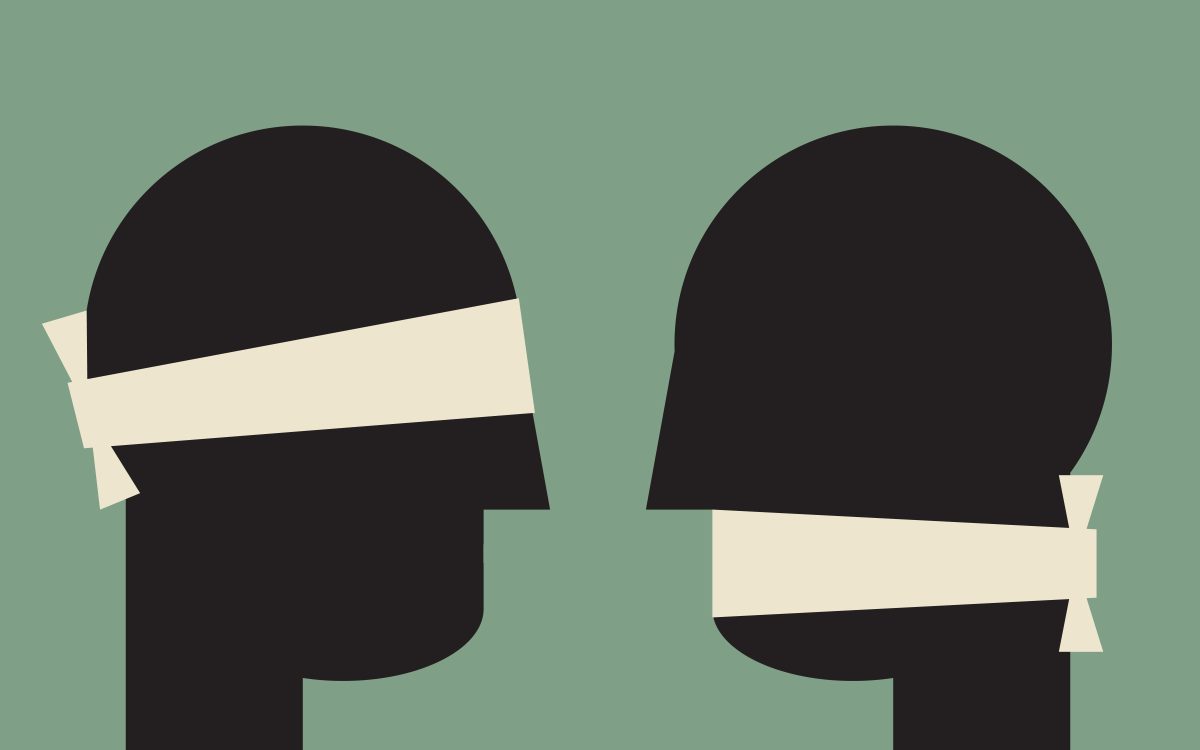There’s a way we do business. We introduce ourselves, who our mob are and where we come from. This isn’t a salutation, though it’s become the stock standard of even short meeting formalities. This protocol is observed as an opportunity to get to know one another and to declare ourselves to those present and before the Ancestral and totemic spirits of any particular place. Enquiry from mob should always be able to be answered, if you’re declaring yourself to be First Nations, as Sovereign.
This seeming social tradition is a “given” and prominent across our arts and Cultural spaces, as it should be. But so many have lost the tradition of “follow-up”. Mob are allowed to ask respectful questions about where you come from and who your people are. This is so we can place you, and ourselves, through and around any kinships or storylines and songlines. Also so we can know who is propa.
There is no avoiding Cultural enquiry from other mob; your self-notion of your identity is not under attack… unless you have a reason to be defensive. Though, definitely don’t be giving non-Indigenous enquiries of a racialised and racist nature any energy.
However, we know there is a scourge of imposters across academia and the arts due to the perceived opportunity a declaration of Indigeneity “comes with”. One thing it certainly does “come with” is the opportunity for assumptions of major, competitive funding opportunities and key roles in colonial institutions (who themselves seek to actively “decolonise”).
The phenomenon of Cultural Adoption is also being brought into the discourse around Indigenous identities. Cultural Adoption is where tribes can adopt others into their kinship circles and customs. Lately, some key figures who were queried on their Indigeneity admitted that their claims as being First Nations are based on Cultural Adoption. There are many questions around what Cultural “Currency” this allows. Though the answer is simple – nil.
It saddens me when such questionable figures operate within our space and claim Cultural Authority and assume key positions as protectors and preservers – the worst is when they act as a “voice” – of Culture and Lore. And yet, they carry no tangible background to speak of, let alone that would warrant such figures this privilege, in addition to being arts workers or thought leaders more broadly.
Don’t get me wrong – and this leads me to where I actually want to be – I wish every person who is (or believes they may well be) Indigenous to find their people and their true way. It’s part of why our mob do ask questions when they are met with people inexperienced in their Culture and unfamiliar with their families. Without doubt, colonisation is to blame in so many ways, and these people hoping to reconnect should be considered with kindness in such genuine circumstances. We ask so we may be able to, possibly, have some knowledge of a missing link to you finding your people.
Artists-a-plenty discuss their “identity” with vigour and en masse, and many people confuse “identity” to be the same thing as a person’s Culture. It forms part of it, but is not interchangeable as a concept. When artists exhibit works all about exploring their “identity” as an Indigenous person, yet nowhere in their professional literature or even signage provide a clue as to which Country and to which mob specifically these artists claim and come from, spidey-senses tingle.
If you’re a phoney, go away (and trust me, we have keen senses and the right and means to challenge). If you’re somebody working in the arts and cultural space, and you’re trying in earnest to discover your people due to a recent revelation of the fact you’re Indigenous, I encourage you to actually consider your responsibility to your mob first and foremost.
In the first instance, if you’re somebody new to your Culture or Indigeneity, and are assuming a leadership role in our sector, step aside for mob who have practised in and are practising their Culture. They have the seniority and we need their Authority at any given time. This just means your time is still coming, which it always will be – not only do we always need strong mob, we have a skills shortage across our sector. Once you have committed to your chief Cultural responsibility (and that’s to go on Country and walk with, meet and learn from your people), then come back. Come back strong and walking propa, and take up the helm in this great sector with Authority and you’ll find your practice to be more empowered, for all of our sakes.
Read: The “helping” hand of allyship: Indigenous art, authenticity and politics
In saying all the above, I do want to acknowledge the unsafe space for recourse around identity discourse – being an effective tool of colonialism. Often discussions around race and Indigeneity are an attempt to discredit bloodline connection to Country through Blood Quantum politics (commonly seen in the US to trace “Native blood”), not a genuine concern about an outright imposter.
Culturally-correct processes in unearthing profiteers and “pretendians” is the only way mob can sanction any queries of those suspiciously making claims of First Nationhood. This is why “query” is the preferred method – query with empathy and understanding of the complexities around the issue, not accusational combativism, which could ultimately play into the colonial handbook.
When outing pretendians to our space and Cultures, you must be relatively sure and have done your homework (and you’ll know the blatant liars from those genuinely disengaged from their history) because we can’t fall into the trap of accusing true mob and perpetrating unnecessary lateral violence, either.
It’s a challenging space. But it’s our business, first and foremost.
This article is published under the Amplify Collective, an initiative supported by The Walkley Foundation and made possible through funding from the Meta Australian News Fund.





